If a baby or toddler falls or hits something and gets a nosebleed, what are the warning signs that they’re severely injured, including a concussion?
Learn about nosebleeds in babies after a fall here.
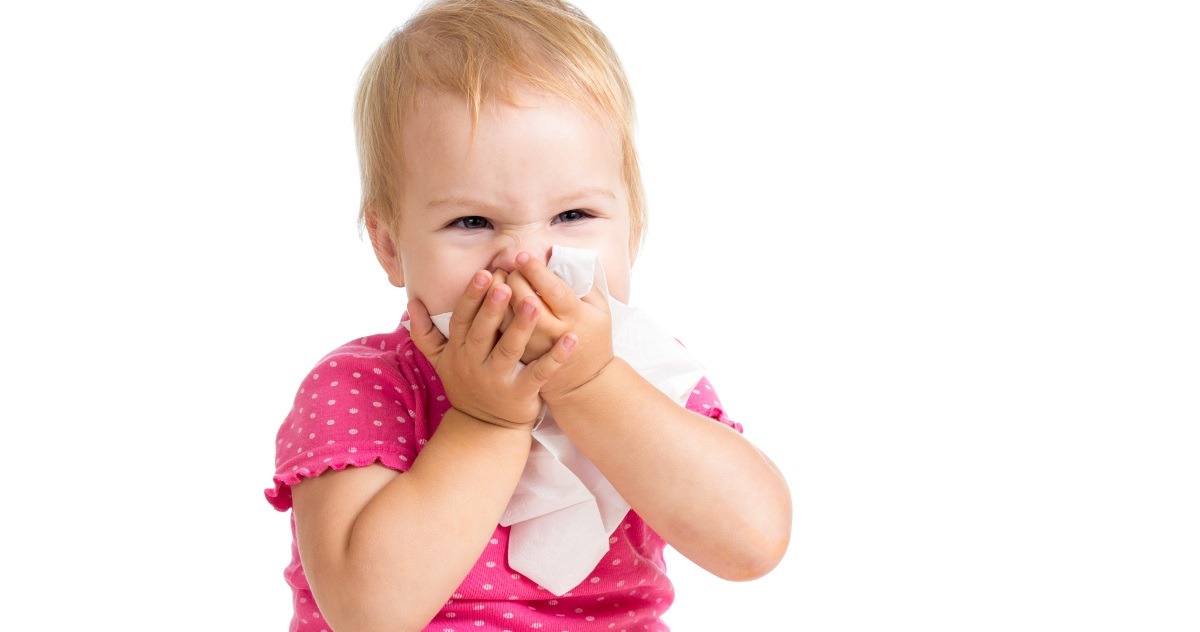
Mom’s Question:
My 16-month-old toddler fell and hit his forehead yesterday; today, he got a nosebleed. Should I be worried? (He is also getting over the flu!)
Nosebleeds In Babies and Toddlers
About 1 in every 10,000 babies under two years old encounter nosebleeds at some point. It’s not as common in this age group compared to older kids. While nosebleeds can be due to extreme weather changes, low humidity, forceful blowing of the nose, or even nose picking, there are also some serious causes. Injury or trauma and certain illnesses are examples of these.
From what you’ve said, your baby’s nosebleed may have been caused by the fall or triggered by the flu.
Falls and Head Injuries
It’s normal for parents to feel worried or anxious after incidents like this. Young children can undoubtedly injure their heads or sustain fractures from falls. Because circumstances differ for each child, it may be hard to know if the fall is serious.
Some first aid steps for your kid may include soothing or calming them down. This will help assessing the injury.
Apply a cold compress on any bumps on the head that you may see. Gently clean any wounds. If you find a deep wound or a wound that won’t stop bleeding, it’s best to bring your child to the nearest medical provider or hospital.
Here are some signs of moderate to severe head injury (a concussion) in children that should signal a visit to the nearest Emergency Department:
- Clear or bloody drainage from the nose or ears
- Seizures or seizure-like movements
- Seems weak on one side of the body
- Has difficulty walking normally
- Very sleepy or difficult to wake up
- Very cranky from their usual behavior
- Loss of consciousness
- Two or more episodes of vomiting
- Nausea (for older kids)
- Severe headache (for older kids)
- Changes in vision or painful eye movement (for older kids)
- Slurred speech (for older kids)
If your baby fell from at least three feet above the floor, bringing them to the Emergency Department is better.
As you can see in the list, bloody drainage is one of the symptoms to watch out for. Your child’s nosebleed indicates that he should see the doctor as soon as possible. Of course, really minor nosebleeds that stop soon after the fall are less likely to indicate a severe injury.
Why a child may have a nosebleed after a fall
We all have a set of small, thin blood vessels along the nose, which supply blood to different parts of the head. Sometimes, when babies fall and hit their faces on the floor (or any object in the way), these blood vessels get injured, causing a nosebleed.
The nosebleed can be a sign of a minor or more severe injury:
- Ruptured blood vessels: A fall may rupture blood vessels in the nose, causing a nosebleed
- Broken nose or skull fracture: A nosebleed may be evidence of a broken nose or skull fracture
- Internal bleeding: If a nosebleed occurs after a severe fall, it could be a sign of internal bleeding, and immediate medical attention should be sought
- Concussion or brain injury: A nosebleed could indicate a serious head injury or brain injury, including a fractured skull. If your baby may be concussed and now suffers from a nosebleed, you should seek immediate emergency care.
- Nose injury: Even minor nose injuries can cause a nosebleed. If the bleeding persists, seek medical attention.
Other possible reasons for nosebleeds
Simple, everyday things can also cause nosebleeds.
People of all ages may experience nosebleeds when it’s especially cold or hot outside. If the air isn’t humid enough, it can make the mucous membranes of the nose very dry and easy to “crack”, which can cause nosebleeds too.
Children sneezing, rubbing, or blowing their noses a lot (usually from allergies, the common cold, or flu, as in your son’s case) can also experience nosebleeds.
Cleaning a baby’s nose can also cause a nosebleed.
What to do for nosebleeds
Here are some guidelines and information on what to do and what to watch out for when a young child has a nosebleed after a fall:
- Help your baby calm down.
- Place them in a sitting position but with a slight bend forward. Support their chest area to make sure they don’t lean too much forward and lose their balance.
- Try to feel the bony part along the nose and pinch below this area of the bone. Don’t pinch too softly or too firmly.
- Squeeze your baby’s nose for 10 minutes straight (don’t stop applying pressure at any point until 10 minutes are up). At the start, check if your baby can breathe through their mouth comfortably.
- Although not necessary, you may also place a cold compress along the bridge of the nose.
A nosebleed in babies after a fall is a reason for concern. Here are a few such reasons:
- Is there any chance that your baby’s nose is broken? (this should mean pain, possibly a crooked nose, and bleeding)
- If the bleeding won’t stop within 20 minutes
- If your baby has trouble breathing
- If your baby is bleeding elsewhere too, for example, from their ears or gums
- If your baby is showing other signs of a concussion (head injury)
In your infant’s case, the nosebleed may still be due to the fall, can be a sign of concussion or internal bleeding, and should be checked by a doctor.
Because your child is less than two years old, some laboratory tests may also be required, depending on the doctor’s assessment.
Even after being seen by a doctor, continue watching your child for around 48 to 72 hours if other symptoms develop, such as being unusually sleepy, reduced balance when walking, vomiting, or being fussier than usual.
Hope this helps,
Paula
More About Babies That Fell
- Baby Fell Off The Bed: 10 Injury Warning Signs, What To Do
- Toddler Fell Off The Couch And Eyes Rolled Back – ER?
- 12-Month Baby Fell Off Bed And Got Injured – Child Abuse Accusation!
- Baby Vomiting After Fall: Why and What to Do About It
Add your comments below.
Research References
- Stanford Medicine Children’s Health: Head Injury in Children
- Children’s Hospital, Los Angeles: Common Infant and Toddler Injuries: When to Seek Medical Attention
- NHS Inform: Minor Head Injury

Paula Dennholt founded Easy Baby Life in 2006 and has been a passionate parenting and pregnancy writer since then. Her parenting approach and writing are based on studies in cognitive-behavioral models and therapy for children and her experience as a mother and stepmother. Life as a parent has convinced her of how crucial it is to put relationships before rules. She strongly believes in positive parenting and a science-based approach.
Paula cooperates with a team of pediatricians who assist in reviewing and writing articles.

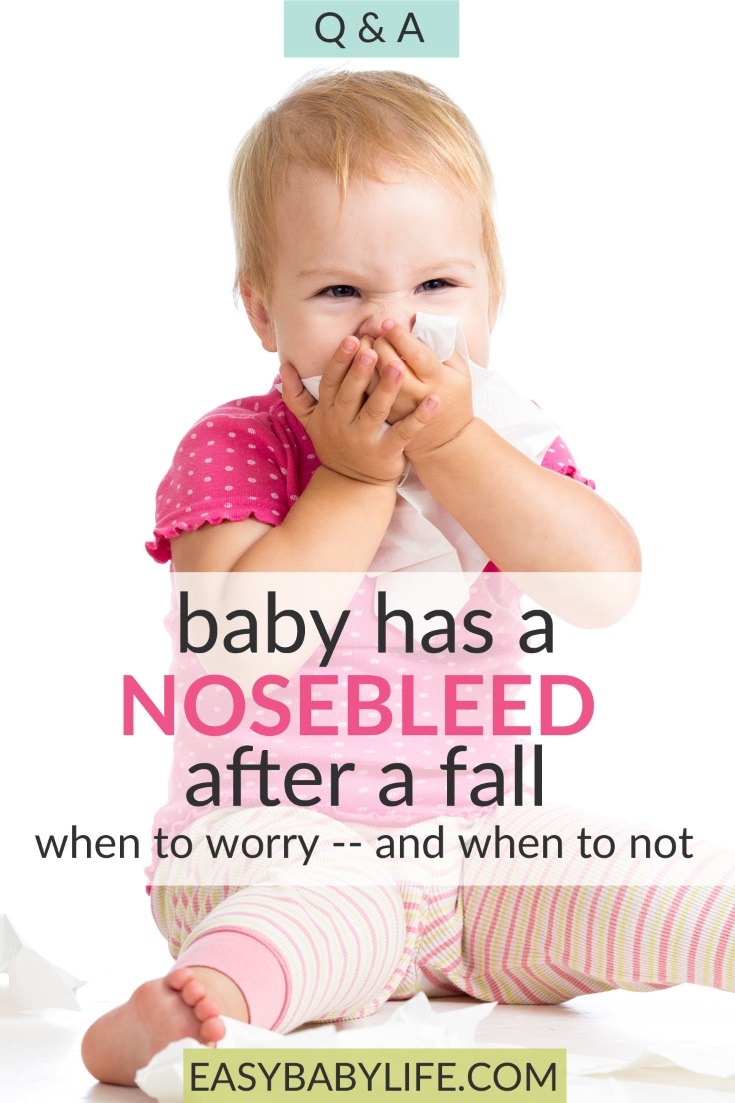
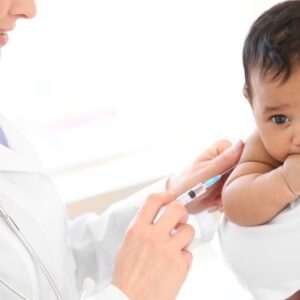
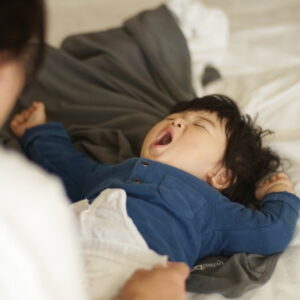

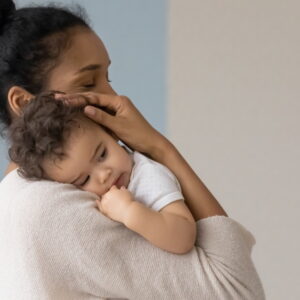
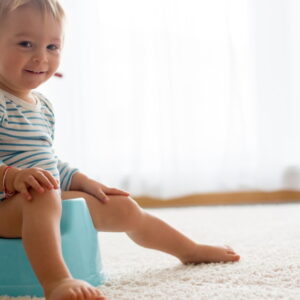
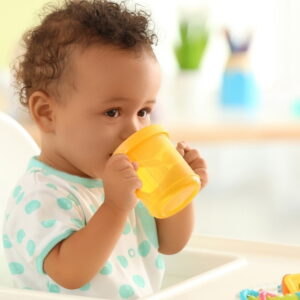
I need some advice…
My little boy knocks his head and passes out. He had his first incident when he was about 11 months old. He was playing, fell forward and hit his head on the floor. He passed out, and we poured cold water on him until he came to. This was about 5-10 seconds after he hit his head.
We never had another incident until December 2018 – he did it about 4 times in a month. But always, after running cold water over him, he wakes up, screams at us for wetting him and then he’s back to normal.
He is not holding his breath until he passes out – he is actually knocking his head, stops breathing and comes to within a few seconds of him being put in the shower with the cold water on full blast.
Why does he do this? He has never had a concussion afterward and he is perfectly fine after these incidents. Like they never happened.
Why does he do this? What is causing him to pass out? Should I panic? Will he grow out of this?
Please help.